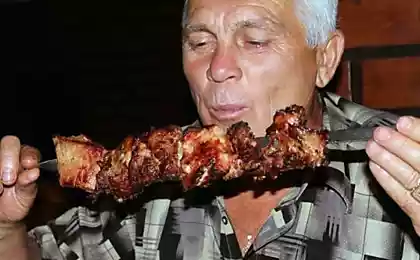788
Instinct barbecue
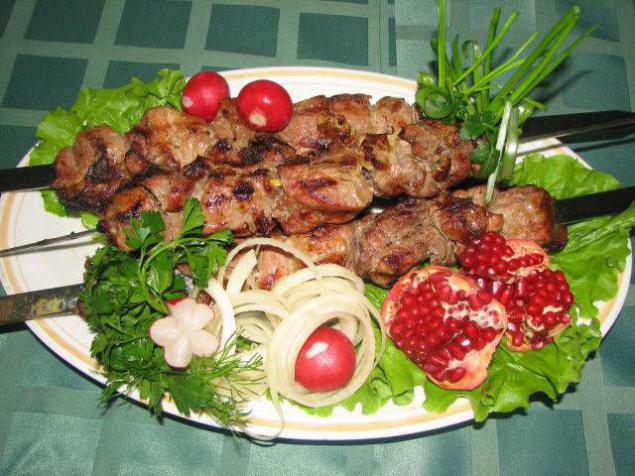
Sixth taste
American chef of Korean origin Edward Lee (Edward Lee) in his book Smoke & Pickles («Smoke and Pickles") says that the popularity of meat cooked over a fire, it is easy to explain. To do this, you must put aside a well-known fact that the main food tastes just four. Sour, sweet, salty and bitter - this, according to Lee, is not all.
As a fifth taste Lee leads' minds "- a concept well known in gastronomy. Receptors for the minds of people take a taste of proteins, perceiving it as separate from the other four stimuli. From the chemical point of view, this sensation receptors present on the tongue in man and other animals, glutamic acid contained in the protein. Umami emphasizes the taste of food and increases the attractiveness of the food. So, the taste of meat grilled - a typical example of the minds.

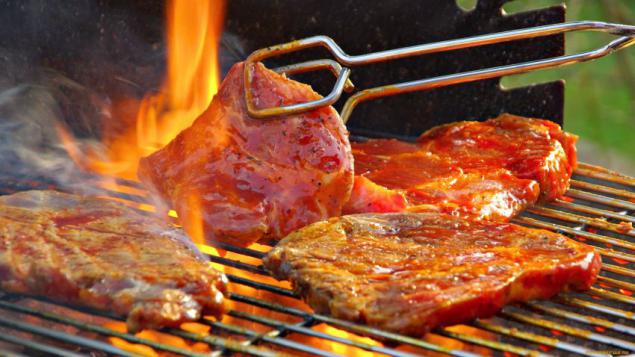
But that's what! Edward Lee is confident that the flavor of food cooked in the fire - it is a separate, sixth taste. Chef believes that to get it from other sources is not possible, so people do not often feel the most mysterious sixth taste and to be pampered, happy to go to the nature of barbecue.
In Russia, barbecue season, usually short, so it is understandable that the people of our country with such zeal spend time zazharivaya Charcoal and open fire almost everything - from marinated meat and sausages bought at the nearest shop, to vegetables and mushrooms, Therefore prostetski flavored mayonezikom. Hunting for a sixth taste in the midst.

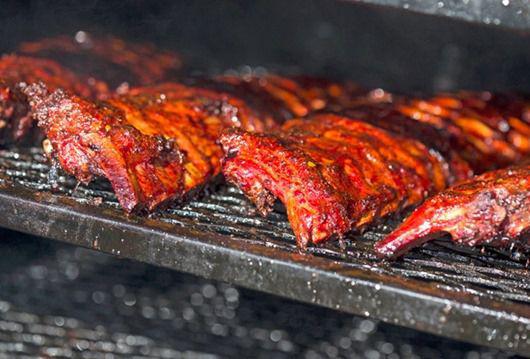
I remember once in the Stone Age ...
Scientists, however, are not willing to recognize the existence of either the fifth or sixth tastes. For example, a professor at the American Culinary Institute of New York, Jonathan A. Zirfoss (Jonathan A Zearfoss) sure that there are no minds and can not be as much of human perception of smell delicious haze, because the body is not responsible for this receptor.
Of course, refuting other people's reasoning, it is logical to always offer their own. Scientists are willing to explain the popularity of the grill, without resorting to newfangled notions of culinary and other metaphysics.
Marcia Pelshat (Marcia Pelchat), researcher at the Center Monell Chemical Senses, said that the scent of freshly char-grilled meat literally imprinted in our subconscious. The memory of odors is stored in the limbic system - the brain structures responsible, among other things, the emotions and sense of smell. During the evolution of the limbic system has changed little and great, "remembers" that the first truly delicious food for the primitive man was flavorful meat cooked over a fire.

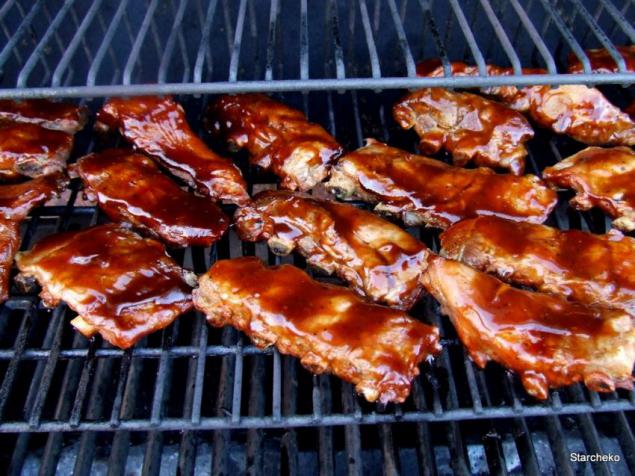
"Culinary DNA" - that can be called the memory of the pleasure obtained by our ancestors for the first time about 1, 8 million years ago. Scientists, however, are not prepared to say with certainty whether people come into this world, loving the flavors already thermally processed animal food, or "raskushali" it in the course of evolution.

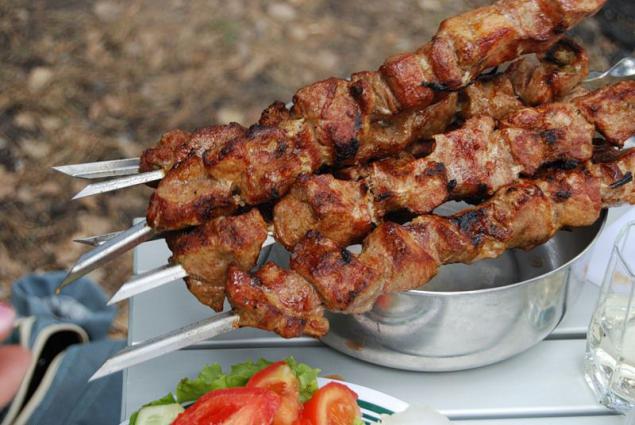
However, the connection is obvious for the experts and, in their opinion, it explains the desire of modern man hearty pieces strung on skewers and standing close to the fire, an hour to inhale the precious scent.
For example, the anthropologist Richard Wrangham of Harvard University (Richard Wrangham) in his book Catching Fire: How Cooking Made Us Human («Extracting Fire: How Cooking made us human ') argues that the heat treatment of food has helped humanity to evolve, reducing the digestion of food and the thus freeing up hours for other more useful and enriching lessons.
--img10--
--img11--
Meat can not eat, but are obliged to love barbecue
According food theorists even vegetarians and animal rights can not remain completely indifferent to the smell of food of animal origin, roasting on coals. The reason lies in the above-described primitive instincts.
Professor of nutrition Paul Breslin (Paul Breslin) have experienced force not recognized by science "sixth taste." Being a staunch vegetarian for six years, one day, he could not resist the aroma of a neighbor's barbecue, which caused a scientist excessive salivation, shameful for fan power plant.
--img12--
--img13--
Of course, Breslin and ready to bring more compelling examples: for example, he advises to pay attention to the increased popularity of the products with the scent of smoke and all kinds of sausages. Nutritionists believe that the way modern people try to compensate for all the same primitive need to eat meat at the fire.
The sublimation of the basic instinct
It's hard to argue with a nutritionist - food "smoky" has always been, is and probably will be popular. Their bitter-sweet taste and peculiar smell even learn cooking classes: Future Kitchen Virtuosos learn to smoke soups, vegetables and even desserts.
On sale you can find products with the scent of "campfire": salt, sugar, spices, olive oil, cheese, chips. People still are not averse to "sit by the fire," let this fire really is and no.
--img14--
--img15--
Doctors against
The only people who did not share the enthusiasm about the primitive meat with the smoke - is medical. They do not get tired to remind that should be considered carcinogenic kebab dish. When frying fat dripping onto the coals and then evaporated to form gas benzopyrene, which is oncogenic. After eating half a kilo of meat, they are soaked, we can safely assume that smoked about 200 cigarettes. At least so say the doctors.
--img16--
--img17--
I do not trust doctors. Even with my long-standing ulcer, I will gladly consume barbecues, in all their diversity. The main thing to know the measure of all. A shampurchik kebab, but under 150 grams of cold vodka, it's something else to enjoy.
What do you think ???
--img18--











